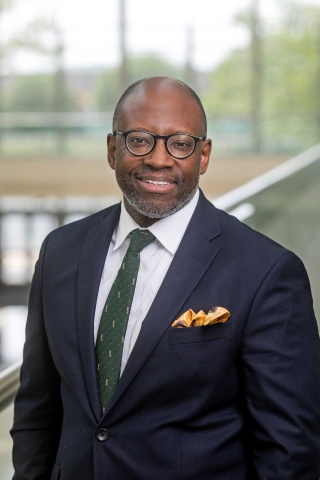Forty-three percent of black pregnancies end in abortion, according to a recent study by the Alan Guttmacher Institute, a leading research and advocacy organization promoting sex education. Nearly 70 percent of all black children are born out-of-wedlock. These two facts taken together should be perceived by everyone as clear evidence of a marriage and family crisis in black America. But don’t count on it. During the upcoming presidential campaign, while we can expect to hear a lot about affirmative action and racial injustice, we’ll likely hear nothing about this crisis.
For demagogues, such unbalanced racial statistics necessarily imply discrimination. Employing this popular political logic, the numbers suggest that abortion providers are racist and that states racially discriminate when issuing marriage licenses. The explanation lies elsewhere.
If nearly half of all black kids in America are being aborted, we must start asking different questions about the moral climate of America in general and what incentives lie behind the preference for abortion and the disdain for marriage. Facts and figures about family life necessarily raise larger questions about the moral choices people make. What’s more, we should be asking searching questions about churches and what they are teaching about the dignity and value of human life, marriage, family, and community.
Interestingly, the severity of social problems within black communities has intensified since the civil rights victories of the 1960s. In 1960, when black America was considered relatively worse off, only 23 percent of black kids were born out-of-wedlock. In 1970, just 33 percent of black women aged 20-29 were unmarried. By 1992, the number of unmarried twenty-something black women catapulted to 70 percent. A gross misconception about the out-of-wedlock birth crisis in black communities is that it is a consequence of teenage pregnancy. In fact, out-of-wedlock birth rates are the highest among women between the ages of 18 and 29. Moreover, since 1969, the largest increase in out-of-wedlock births has been among black women between the age of 20 and 24. Therefore, adult black women are purposefully choosing to have children outside of the context of marriage.
Marriage has profound effects on the quality of life for black kids. A data analysis report on marriage released by the Heritage Foundation highlights several benefits of marriage. For example, marriage dramatically reduces the incidence of poverty for women who remain romantically involved with the father from the time of the child’s birth. Marriage reduces the odds that a mother and child will live in poverty by more than 70 percent. If mothers remain single and unemployed, they will remain poor permanently; if single and employed at least part-time, slightly more than half will slip below the poverty line; and only 10 percent of mothers will sink into poverty if employed full-time. Moreover, marriage combined with part-time maternal employment increases family income by 75 percent. Sadly, more than 80 percent of long-term child poverty occurs in broken or never-married families.
There are even more alarming pathologies resulting from out-of-wedlock births. For example, nearly 30 percent of all welfare recipients resort to living on public assistance because of poverty associated with single-parenthood. Black children from single-parent homes are twice as likely to commit crimes as are black children from families with resident fathers. Seventy percent of juveniles in state reform institutions come from single-parent homes. And there is a strong, inverse relationship between incidence of out-of-wedlock births and education attainment.
Of course, individuals can and do rise above brokenness and poverty. Yet, the statistical big picture reveals how the devaluation of marriage and family has created a crisis in many black communities. The Bush administration has proposed making marriage an important component of the next phase of welfare reform and rightly so. The administration seeks to introduce incentives to increase and maintain a high number of marriages in an effort to thwart many of the associated outcomes listed above.
A government program, however, can only go so far. What is needed, more desperately than ever, is for churches to step in and engage this issue proactively. What America needs is a strong witness from Christians who can communicate persuasively and practice God’s design for marriage, family, and community. Disconnecting human life, marriage, and family from its correct foundation in God is literally destroying our communities and keeping generations enslaved to self-destructive behavior.
Reverend Ray Hammond, pastor of Bethel AME Church and board member of Boston’s Black Ministerial Alliance, has the right idea. Rev. Hammond is promoting biblical formulations of marriage and family in hopes of combating what he calls “the epidemic level of fatherlessness in America.” He understands that marriage, rightly constructed, is necessary in providing the way out of “the social wilderness of family disintegration.”
Given a culture that stifles human potential through abortion and the devaluation of the bedrock, life-sustaining institution of the family, we should not be surprised that there is not “enough” black presence in influential sectors of American society. Many have forgotten that there was a time when these pathologies were the exception rather than the rule in the black community. They can be overcome only when we rediscover God’s wisdom, including a right understanding of the institutions that strengthen families and build up communities.







